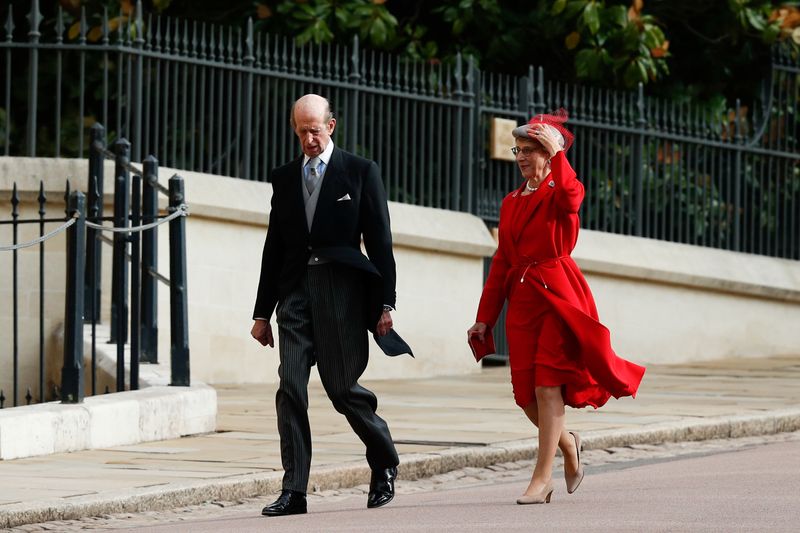LONDON (Reuters) -Britain’s Duchess of Kent, the wife of the cousin of the late Queen Elizabeth and best known for her long association with the Wimbledon tennis tournament, has died aged 92, Buckingham Palace said on Friday.
Born Katharine Worsley, she joined the royal family when she married Prince Edward, the Duke of Kent, in 1961 after meeting him five years earlier when he was stationed at a military barracks in northern England.
Buckingham Palace said she had passed away peacefully on Thursday night at her home in Kensington Palace surrounded by her family.
“The King and Queen and all Members of the royal family join the Duke of Kent, his children and grandchildren in mourning their loss and remembering fondly the duchess’s life-long devotion to all the organisations with which she was associated, her passion for music and her empathy for young people,” it said in a statement.
The duchess will be best remembered for her close association with Wimbledon, where from 1969 she helped to hand out the trophies.
She famously comforted Jana Novotna when she burst into tears after losing the singles’ final in 1993, literally giving gave her a shoulder to cry on.
“I know you will win it one day, don’t worry,” the duchess told her, and was proved right when Novotna won the title five years later.
However, her relationship with the tournament turned sour in 1999 after she was refused permission to bring the 12-year-old son of a bereaved friend into the royal box.
The duchess also made headlines in when she converted to Roman Catholicism in 1994, becoming the first British royal to do so since King Charles II, who turned to the faith on his deathbed in 1685.
In doing so, she went against an early 18th century law forbidding members of the monarchy from becoming Catholic.
The duchess, who had three children and 10 grandchildren, was also passionate about music and as well as supporting musical charities, for a number of years she taught music at a school in Hull, in northeast England.
(Reporting by Michael Holden; editing by Alistair Smout and William James)

